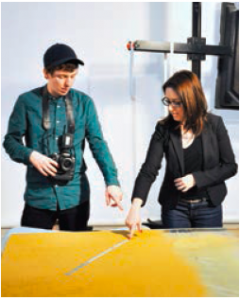 Are we done talking about articling yet? No. No we are not. If anything, the discussions that take place over the next few months matter more than ever.
Are we done talking about articling yet? No. No we are not. If anything, the discussions that take place over the next few months matter more than ever.
After a raucous debate about the future of articling at Convocation this past fall, the benchers voted in late November to change how lawyers are licenced. In an attempt to address the shortage of articling positions, the new program allows for either articling or a combination of courses and work placements (paid or unpaid) over eight months.
If you got called to the bar about 10 or 15 years ago, the Law Practice Program (LPP) option doesn’t seem that different. At that time, you’d spend a few months in classes at the Law Society and then 10–12 months articling at a firm. The timelines are shorter, but the idea is the same — but this time, the Law Society is contracting out.
The request for proposals for LPP providers was issued in February. Whoever lands this contract (and I’m not sure who will, given the requirements — see our sidebar on “School’s A Beach”) will have an enormous impact on the future of licencing. Will they develop an amazing program that even the very best law grads will want to take? Or will the LPP become a second-best, stigmatized option?
An idea that’s buzzing around universities is to offer the LPP as part of law school. I think it’s a perfect solution. First, the law schools already know how to teach, so developing skills courses wouldn’t be that hard. Second, the law schools have relationships in their communities, so they would be best equipped to find placements. Third, there would be courses provided in all the cities where there are law schools — hello accessibility.
But most importantly, if we could put the LPP in every law school, it would level the playing field. Students with the best marks, résumés and interpersonal skills will still land the prestigious and high-paying placements, but those who don’t will not stand out.
We know that of the students who don’t land articling positions, minorities, mature students and foreign-trained lawyers are disproportionately represented. If the real goal of the LPP is to ensure that certain groups aren’t shut out of our profession as a result of discrimination, then the last thing we want to do is add another reason to discriminate. If we want all new lawyers to be treated equally, we need to train them equally.
I doubt that all the law schools will be prepared to offer the LPP or are even interested in the idea, but it should be on the table. Articling as we know it is about to change. If we want to change it for the better, we have to look at it from every angle.
 Behind the scenes
Behind the scenes
I literally got to lend a hand for this issue of Precedent. Yes, those are my carefully manicured fingers modelling for the front cover. Although it looks like a mysterious blue powder, I’m actually clearing away a layer of thyme — an idea courtesy of our super-talented photographer Andrew B. Myers. It worked well, but the studio smelled like we were cooking 20 turkeys. Being on set is one of my favourite parts of the job. I am always amazed at the creativity, patience and organization that are required for everything to come together. To see outtakes from the day, check them out below.


